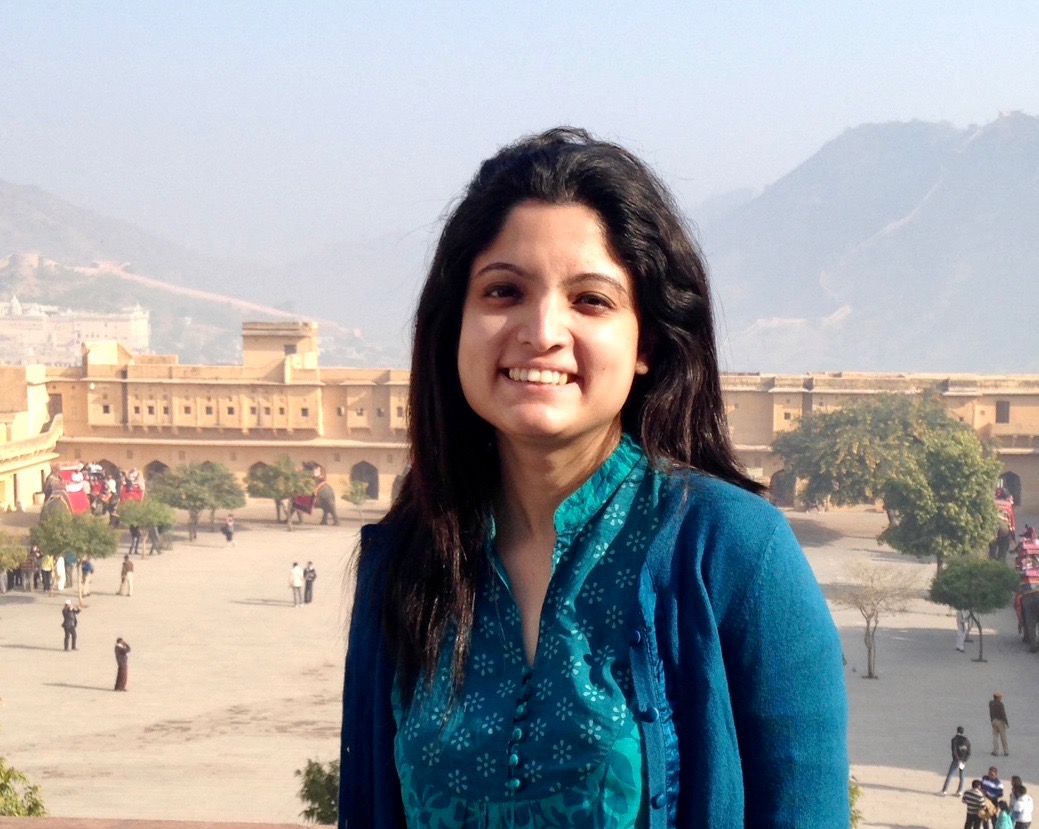Each year the Sparkman Center for Global Health awards mutiple Moses Sinkala Travel Scholarships to assist students in completing an international research or internship opportunity. In the spring of 2016, UAB Sparkman Center Fellow, Reshmi Mukerji, was awarded the Moses Sinkala Travel Scholarship to assist with her research interests regarding tuberculosis (TB) and social stigma in Kolkata, India. Under the mentorship of UAB Sparkman Scholar, Dr. Janet Turan, Reshmi traveled to Kolkata, India in the summer of 2016 to collect data for her research project.
Since then, Reshmi and Dr. Turan have published two articles on this project:
Continue reading to hear Reshmi's account of her career path and the research she conducted in India:
 Photo provided by: Reshmi Mukerji
Photo provided by: Reshmi Mukerji
"I started the MPH program in Healthcare Organization and Policy in the Spring of 2016. Right from the beginning of the program I knew that I was interested in global health, which led me to seek out opportunities in this area at UAB. During my initial meeting with my program advisor, Dr. Stephen Mennemeyer, we discussed my interest in global health and avenues for global health work at UAB. Dr. Mennemeyer informed me about both the Sparkman Center and Dr. Janet Turan and her research in Africa. When I went home that night and looked up Dr. Turan’s profile on the UAB website, I knew immediately that I wanted to work with her! I was always intrigued by the social stigma surrounding certain diseases such as tuberculosis (TB) and HIV. Coming from India, where gender disparities are still rife, I was particularly interested in how stigma impacted women. As Dr. Turan wrote to me in her first email, “It sounds like we have many common interests and passions” and so began our journey on this research project! Dr. Turan mentored me through the development of the research proposal for the Moses Sinkala travel grant (which I received in the Spring of 2016), the IRB application process once I was awarded the grant, and of course throughout the course of this entire research project. I was also chosen for the Sparkman Fellowship for the year 2016-17 and Dr. Turan was my mentor for this program as well.
In the summer of 2016 I traveled to Kolkata, India to collect data for this research project. The study itself was an exploration of the social stigma experienced by women patients attending a directly observed therapy-short course (DOTS) TB clinic in Kolkata, India. I had volunteered at this particular TB clinic before, during my time working at an affiliated non-profit in Kolkata. We decided to conduct a qualitative study to understand the different dimensions of stigma experienced by women who were either on TB treatment or had completed treatment. Current conceptualizations of stigma classifies stigma into four categories: perceived stigma (feeling that those without the condition perceive people with the condition negatively), anticipated stigma (expectations of discrimination, stereotyping, and/or prejudice from others post disclosure due to a stigmatized condition or behavior), enacted stigma (experiences of discrimination, stereotyping, and/or prejudice from others in the past or present due to the stigmatizing condition) and internalized stigma (endorsing negative feelings and beliefs associated with the stigmatized condition and applying them to the self). Very few studies have used this framework to describe the stigma experienced by TB patients.
We also explored the mechanisms used by women to cope with the experiences of stigma and TB. I conducted qualitative in-depth interviews with twenty women between the ages of 18-64 years from different faiths, but from similar socioeconomic levels and educational backgrounds. Our findings revealed that widespread stigma was experienced by women TB patients. Stigma manifested itself through social isolation, avoidance, failed marriage prospects, neglect from family members, gossip and verbal abuse. Some of the consequences of stigma included non-disclosure (which had an impact on TB transmission and control), feelings of guilt and mental health issues, which included feelings of depression, anxiety and even suicidal ideation. Coping mechanisms used by the women to deal with these negative experiences included prayer, positive reframing, being able to talk to other patients (for which the communal nature of DOTS provides an excellent platform), and focusing on school work or relaxation activities. We hope that the study findings can be used to design stigma-reduction interventions through the formation of social support groups and awareness programs that dispel some of the misconceptions surrounding TB. The manuscript from this study, entitled “Exploring Manifestations of TB-Related Stigma Experienced by Women in Kolkata, India” has been accepted for publication in the Annals of Global Health."
-Author: Reshmi Mukerji, UAB MPH Graduate
Sparkman Center Fellow 2016-2017